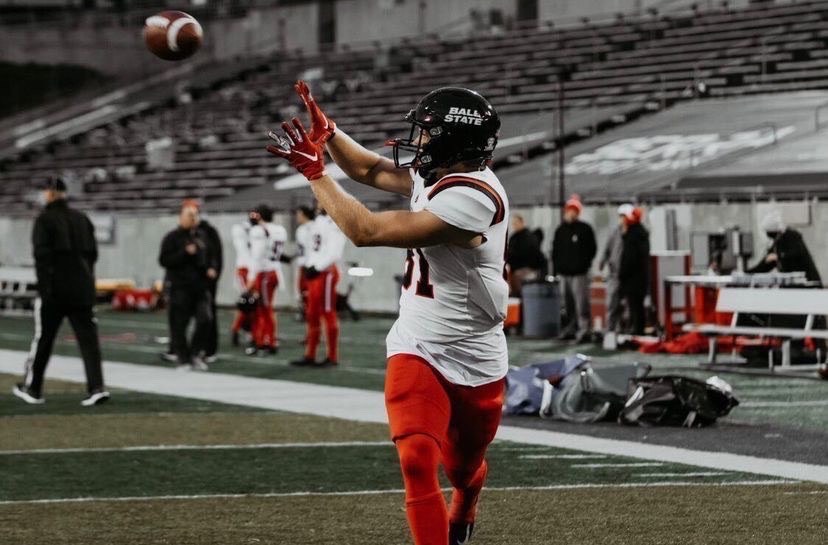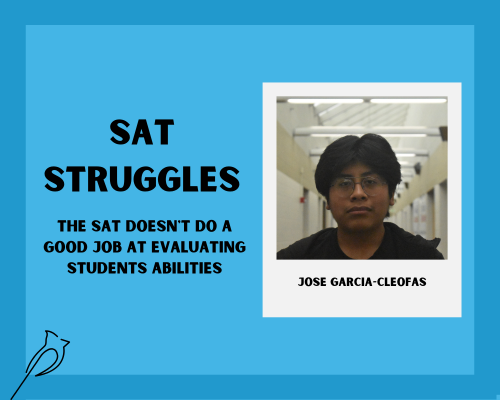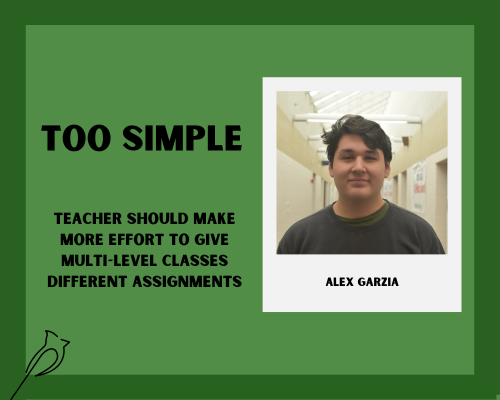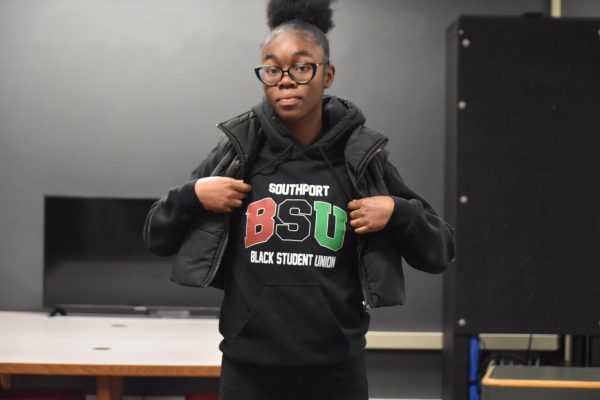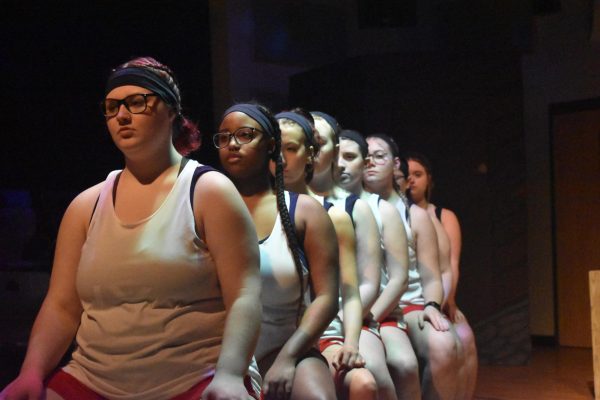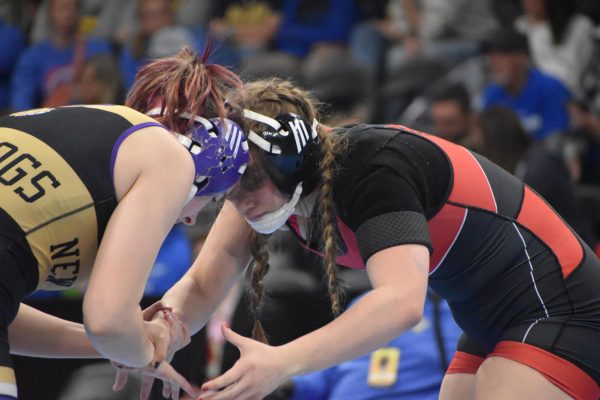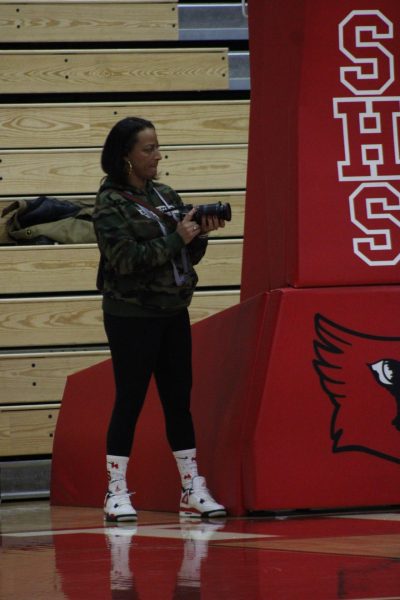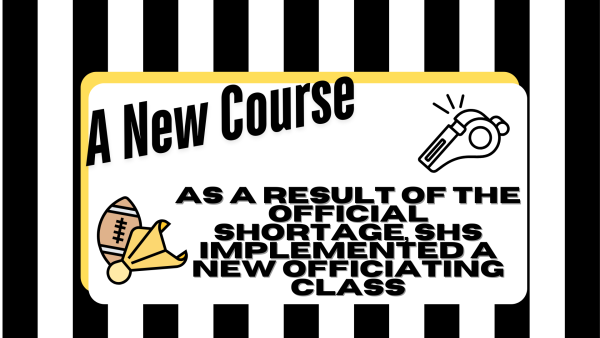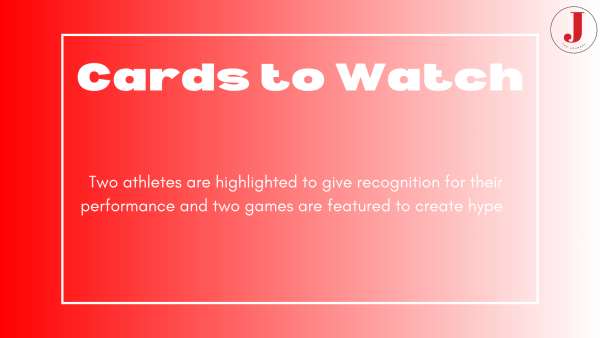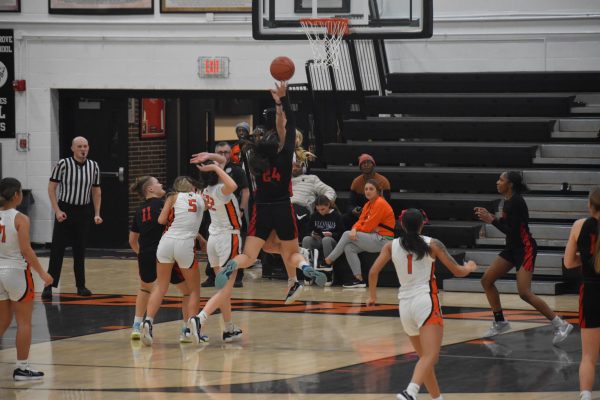What’s The Difference
The gap between high school sports and collegiate sports might be greater than most people think
Next year, senior Emily Galbraith will take the next step in her athletic career and play volleyball for Elmhurst University, a Division III school in Illinois. She will be thrown into a new world of college athletics, something she knows will be completely different from the sports she played in high school.
“I think the girls there will take it more seriously and that it won’t be all just for fun like it was in high school,” Galbraith said.
Playing sports in college is just one way for high school athletes to continue their career. It is a chance to take their game to the next level and maybe get looked at for the pros. However, there are many challenges and differences between the two.
“The biggest focus from college athletes is a lot of people are trying to set themselves apart, either through discipline, how they eat, keeping their health right, working out and getting extra work,” Ball State tight end and SHS alumni Ryan Lezon said. “So just that mindset of trying to be better than the guy next to you, I feel like is the biggest difference between college sports and high school.”
According to Lezon, one of the big differences between high school and college sports is how they are run. For the most part, high school sports are seen as a fun place to hang out with the team and friends, but college athletics is strictly business. The players have workouts, practices and required team meetings almost every day. Alongside these, there isn’t an offseason because the athletes work all year to come back better the next year.
“In high school, you go to school, practice for 2 hours after school, and that’s your day,” Lezon said. “In college, the sports itself are a 9 to 5 job, if not longer.”
College is where the best high school players from around the nation can play against others who share their talents and dedication to their sports. Being dropped into that environment can be a struggle to adjust to, especially as a freshman playing against athletes who have been competing with future professionals for years.
On the other hand, some people handle situations differently. Some enjoy a higher level of competition and have the motivation to work harder to earn a spot on the team.
“I was a rare individual that I was actually a better college player than I was a high school player,” head SHS basketball coach Eric Brand said. “You’re challenged more both in the weight room and on the court. You’re playing with guys who are older than you, that are more experienced than you.”
A struggle that high school athletes have is balancing school work and athletics. This can be difficult for high schoolers because they don’t have the time to do their work with practice and games weekly.
In college, it doesn’t get any easier. The challenge to find time to study and focus on school work and compete in sports is even harder because of the year-long practices and workouts. Most high school athletes play for a couple months and then have an off season with occasional conditioning.
If a high school student doesn’t have the grades to play, then they have to sit out the season. Whereas, if a college student doesn’t keep a certain GPA, they could potentially lose out on thousands of dollars in scholarship money along with the chance to compete.
“Playing sports motivates me to get good grades because if I don’t I can’t play,” Galbraith said.
The teammate part of the game changes also. In high school, athletes may have some friends on the team and they hang out after games and on the weekends. In college, players spend hours practicing, working out and traveling to games to where they feel as a family, according to Brand.
“There is no question that you are in much more of a family environment, in a good chemistry in college, because you are normally living with your teammates, and you spend a lot more time with them,” Brand said. “When you are in high school you go home to your parents.”
High school sports is usually the end for most athlete’s journeys. Those lucky enough to make it to the next step in the journey need to be prepared for the tough road ahead.
“Your freshman year, if you are not prepared properly, can be a real slap in the face,” Brand said. “If you have not been pushed or criticized in high school, that first time or two you get pushed in college some kids don’t handle very well.”

Hi, I am Josiah Veen. I am a sophomore and a sports writer for The Journal. I am excited for my first year on The Journal, though this is my second year...


